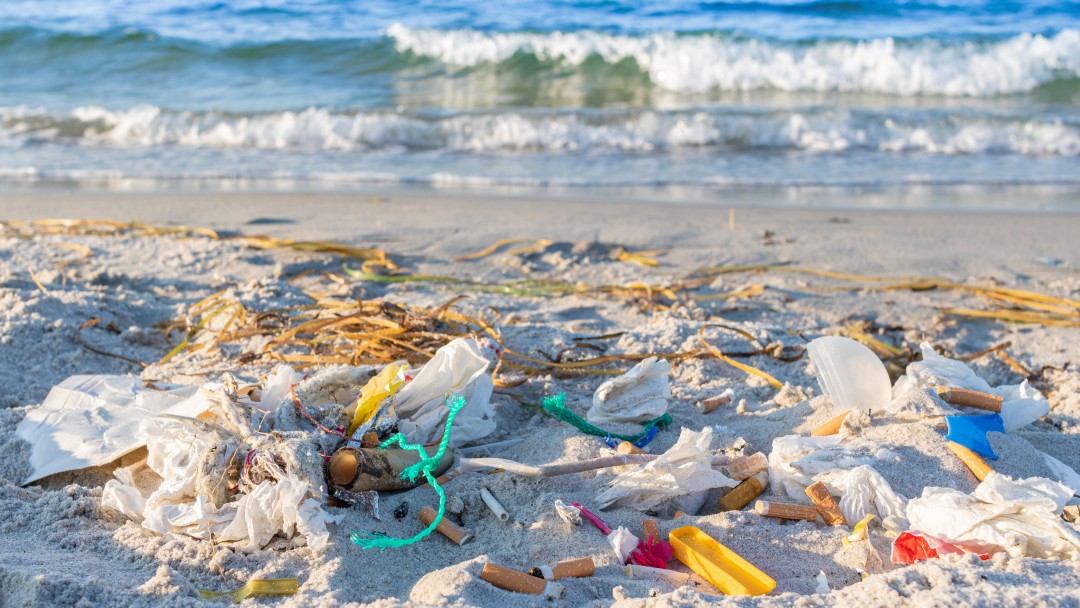
In May 2019, a special type of alliance was created: German Federal Minister Dr Gerd Müller gave the signal to start “PREVENT” – an association that has since come to include 180 institutions, companies, non-governmental organisations and think tanks. Its aim is to combat the growing mountains of waste around the world. It intends to minimise pollutants and support recycling systems worldwide.
“We urgently need to transition to a circular economy. The PREVENT Waste Alliance is an important step towards this aim. It brings committed organisations from Germany together with international partners,” says Minister Müller as he explains his motivation behind creating the alliance. Accordingly, PREVENT’s motto is “Together for a circular economy”.
The Alliance has now grown to include 180 members; KfW has been there from day one. In addition to the Federal Ministry for Economic Cooperation and Development (BMZ) and the Federal Ministry for the Environment (BMU), its members also include institutions such as the Gesellschaft für Internationale Zusammenarbeit (GIZ), the Federal Environment Agency, the Association of German Chambers of Commerce and Industry (DIHK), the Wuppertal Institute for Climate, Environment and Energy, large companies like Coca Cola, Danone and Nestlé, and NGOs such as the WWF, the German Nature and Biodiversity Conservation Union (NABU) and Malteser International. GIZ also organises the secretariat on behalf of BMZ.
The Waste Alliance wants to bring together stakeholders, provide information, share expertise and carry out pilot projects with the aim of getting a functioning waste and recycling management system off the ground, especially in emerging and developing countries. The alliance is active in four working areas and groups: “Prevention of plastic waste”, “Closing packaging cycles”, “Developing take-back and recycling systems for electrical and electronic equipment”, “Improving framework conditions on municipal level”. Furthermore, in late 2020 the first eight pilot projects were selected during the first plenary assembly of all members, which took place virtually.
Their intention is to pursue innovative, sustainable and effective approaches in line with PREVENT’s aims; for example, in a project in Indonesia, the value chain of plastic was digitalised using blockchain technology, thus facilitating its collection. In Mexico, work is being done to create a plastic deposit system; in Nigeria they are focusing on sustainably handling electronic waste; in Ethiopia they want to promote and improve the way they deal with organic waste. The aim of the projects is to develop and demonstrate model solutions so that they can be adopted by other countries and municipalities.
Membership in PREVENT augments and expands KfW Development Bank’s commitment in this area: in 2018 KfW launched the Clean Oceans Initiative (COI) together with the European Investment Bank (EIB) and the French development agency AFD. Now two further development banks have joined the ranks: Spain’s ICO (Instituto de Crédito Oficial) and Italy’s CDP (Cassa Depositi e Prestiti). With this European initiative, KfW aims to reduce pollution of the world’s oceans, particularly from plastic waste. The three founding institutions have already committed EUR 1.3 billion for this purpose in the first two years. “Plastic waste has been placed on the list of major challenges, right after climate change,” explains Chief Executive Officer Dr Günther Bräunig as he discusses KfW’s commitment to numerous other projects in the waste sector in addition to COI.
Share page
To share the content of this page with your network, click on one of the icons below.
Note on data protection: When you share content, your personal data is transferred to the selected network.
Data protection
Alternatively, you can also copy the short link: kfw-entwicklungsbank.de/s/enzBYAAy
Copy link Link copied